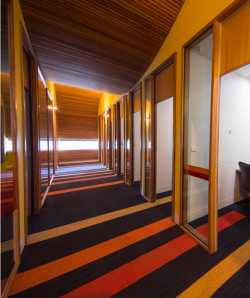Our research
We investigate human and machine decision-making in complex environments at the levels of brain, mind and markets
Overview
The Centre for Brain, Mind and Markets is a platform for interdisciplinary research on decision-making. We study human and machine decision-making in complex environments. We draw on methods from computer science, economics, mathematics, neuroscience and psychology.

One challenge decision-makers face when making a decision-making is that they typically only have limited evidence available to evaluate different courses of action. We study how agents learn about their environment from information acquired through interacting with the environment and how they integrate this information into decisions. For example, we study how agents learn in environments where they encounter frequent outliers, a property of financial markets and many other social systems. In other work, we investigate how neuromodulators like dopamine and serotonin as well as the neuropeptide hypocretin affect decision-making.

Another critical challenge decision-makers face is that they must process the evidence available about different courses of action with limited cognitive resources. We study how agents process information with limited cognitive resources when making decisions. For example, we develop theoretical models to quantify the complexity of decisions. We study how agents adapt to different levels of complexity, for example, by changing the cognitive strategies they use, or how they use digital tools to 'offload' information processing demands when making decisions.
In a third strand, we investigate how agents make decisions with interacting with each other, for example, in markets. For example, we investigate how agents learn from each other when making decisions in complex stochastic environments. In another project, we study how the complexity of securities affects the quality of prices in financial markets.
Basic and translational research
Most of our research is fundamental research, investigating the computational, mental and neural processes associated with decision-making. We also work closely with partners in medical research, business and government to solve pressing translational research problems, for example, understanding the effects of psychiatric disorders on decision-making or the design of regulation of consumer markets.
The research of our members has been published in leading journals in biology, cognitive science, economics, finance, neuroscience, psychiatry and psychology including Biological Psychiatry, Current Biology, eLife, Journal of Experimental Psychology, Journal of Finance, Journal of Neuroscience, Journal of Political Economy, Lancet Psychiatry, Management Science, Nature Neuroscience, Neuron, PLoS Biology, Proceedings of the National Academy of Sciences, Science and Trends in Cognitive Science.
Our work has been covered by national and international media including ABC, The Age, The Australian, Australian Financial Review, CBS, Daily Mail, The Economist, Financial Times, The Guardian, National Geographic, NBC, New Scientist, New York Post, SBS, Vox and The Washington Post.
Methods

In our research, we combine theoretical with empirical work. Most of our empirical research is based on laboratory experiments. The latter include behavioural experiments at the levels of individuals and markets, which we often combine with eye-tracking, psychophysiology, pharmacology or neuroimaging.
Research training
We offer research training at Honours, Masters and PhD level. To find out about doing Honours with us, visit the Honours in Finance site. If you are interested in doing a PhD with us, please visit the site of our inter-disciplinary PhD program in decision sciences (Decision, Risk and Financial Sciences) for more information.
Infrastructure

We conduct most of our behavioural experiments in the Faculty of Business and Economics Experimental Research Facility. The state-of-the-art facility accommodates experiments with individual participants as well as small and large groups (for example, for markets experiments). It provides virtual reality, eye-tracking as well as psychophysiology testing equipment. We use the 7 Tesla MRI system at the Melbourne Brain Centre and have access to various 3 Tesla MRI systems in the nearby Parkville medical precinct.